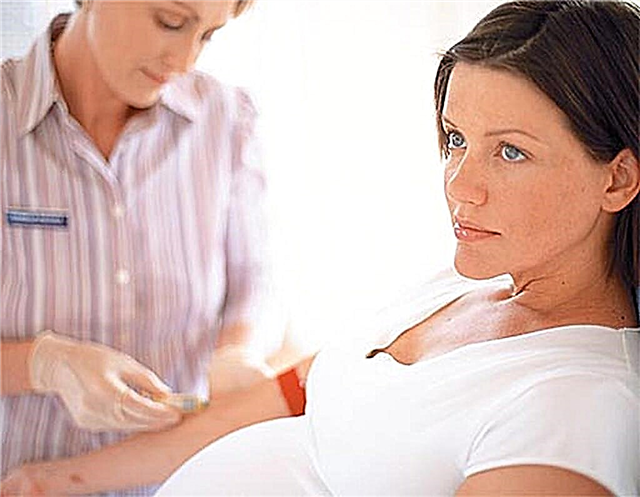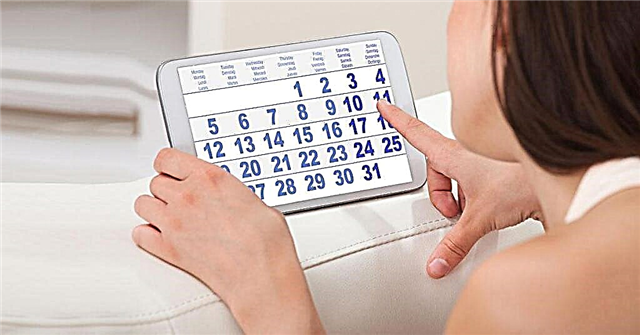When a child appears in a family, a huge responsibility always falls on the parents. The baby needs constant care, attention and careful care. Of course, bathing, feeding and changing diapers are not all that difficult, but they also need to be done correctly. Despite their best efforts, parents often make mistakes, especially at first. Read about how to avoid them in this article.

1. Bathing in potassium permanganate
Mothers often bathe their babies in a bath with a potassium permanganate solution. They are convinced that thanks to such water procedures, the baby will be healthy and will not catch any infection. However, pediatricians explain that potassium permanganate is not only not good for the health of the baby, but can also be harmful.
"Rose water" dries the skin very much and if you bathe the crumbs in water with a solution of potassium permanganate often, it can lead to peeling. The same effects are given by the infusion of the series. In general, any herbs are potential allergens and causes of dry skin, so you should only use them after discussing this with your doctor.
A really useful bath with potassium permanganate can only be for the healing of the umbilical wound. Those. it is necessary to bathe a newborn in potassium permanganate only until the umbilical wound heals. In other cases, using rose water is pointless.
When the umbilical wound heals, the newborn can be bathed in ordinary warm water at a comfortable temperature. It is better to use baby foams, shampoos and gels no more than once a week, even if they are absolutely safe and hypoallergenic. You should not do this more often so as not to deprive the baby's skin of its natural protection.
- What water to bathe a newborn baby in
- How to properly bathe newborn babies
- What to do if a child is afraid to swim in the bathroom
- 10 commandments for healthy baby bathing
- Optimal water temperature for bathing a newborn baby
2. Incorrect use of diapers
Many mothers criticize diapers, accusing them of having diaper rash and skin irritation in their baby. This is another delusion. Modern diapers are a unique invention of mankind and they were created to simplify baby care, to keep baby's skin dry and clean. If diaper rash and skin rashes occur, then the diaper is simply being misused.
Every mother should know that the baby should change the diaper at intervals of 3 hours and every time after a bowel movement. Every time you change a diaper, you must definitely arrange an air bath. If babies develop allergies, changing the brand of diapers (which diapers to choose for newborns (+ video reviews)) usually helps to solve the problem.

3. Fear of hypothermia
Caring for a small child often goes to extremes and a typical mistake of most parents is the fear of overcooling the child. Adults begin to wrap up babies in blankets, turn on the heater, and wear them in winter overalls for a walk when it's early autumn outside. Grandmothers, who are sure that the child is constantly freezing, make their contribution.
Any pediatrician will confirm that overheating for an infant is a more dangerous condition than hypothermia. When he overheats, his whole body begins to sweat at once, his skin becomes moist. From a light breeze or a slight draft, the baby runs the risk of catching a cold. Also, excessive wrapping of the child and overheating provokes prickly heat - a skin rash that itches and itches a lot. Globally, overheating negatively affects the nervous system of the child.
Rule: You need to dress the baby in the same way as yourself, plus one more layer. It is important that the clothes are made from natural fabrics, the same goes for bed linen. The room where the baby is located should be regularly ventilated. It should maintain a temperature in the region of 22-24 degrees. Then the child will be comfortable.

4. Cutting your nails is torture
It is difficult for most parents to trim the nails of a newborn. They are afraid to hurt the child, to hurt him. In this case, the baby is constantly tossing and turning, moving his arms. However, if you choose the right tool, the procedure will be much easier.
Babies need to trim their nails as they grow. It is recommended to do this more often because harmful bacteria accumulate under the nails. To do this, it is worth purchasing safe thin children's scissors: their ends are blunt, so they cannot injure the baby's fingers.


5. Peeling off crusts on the head
The baby does not immediately stabilize the work of the sebaceous glands. For this reason, in the first months after birth, yellowish crusts may form on his head. This phenomenon is very common, it is not dangerous for health, but it requires proper care.
 Many parents make the mistake of picking up these crusts. It is absolutely impossible to do this. After all, babies have such delicate and vulnerable skin that it is very easy to injure. And where there is injury, there is inflammation (especially considering the fact that a huge number of bacteria accumulate under the nails of parents).
Many parents make the mistake of picking up these crusts. It is absolutely impossible to do this. After all, babies have such delicate and vulnerable skin that it is very easy to injure. And where there is injury, there is inflammation (especially considering the fact that a huge number of bacteria accumulate under the nails of parents).
If a newborn has yellowish crusts, you need to wash his head with warm water and mild baby shampoo. Then you should gently blot the child's head with a towel, without wiping it dry, apply baby oil and put on a cap. The scales will soften, so they can be easily cleaned off with a comb, gently separating the scales and without causing discomfort to the child. Several procedures will be required to remove all crusts. There is no need to rush in this matter. We read in detail: About crusts on the head of newborns - the causes of occurrence and how to remove them
- 15 outdated baby care tips
- Major misconceptions in caring for newborn babies
- My mistakes in caring for a newborn daughter
- The most important tips for caring for a newborn. Best Memo Article for Moms and Dads



